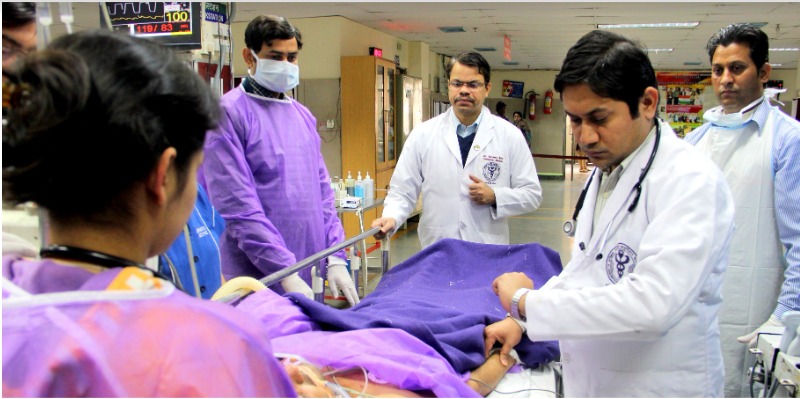
Research for health is a global endeavour and advances in emergency care research is critical to achieve national and global health targets, such as the Sustainable Development Goals (SDGs).
WHO Collaborating Centre for Emergency & Trauma Care, SEAR (WHO CCET-SEAR) plays a unique role in ensuring that these efforts can help to improve emergency care for all. WHO CCET is undertaking public health research projects along with the emergency care research to work on following areas of activity:
- identification of the gaps in the emergency care system which prevent delivery of quality and time care during emergency conditions;
- measuring the magnitude and distribution of the health problems (majorly emergency and trauma issues);
- understanding the diverse causes or the determinants of the problem, whether they are due to biological, behavioural, social or environmental factors;
- developing solutions or intervention packages that will help to prevent or mitigate the problem;
- implementing or delivering solutions through policies and programmes; and
- evaluating the impact of these solutions on the level and distribution of the problem.
WHO CCET, SEAR has been conducting qualitative and quantitative research projects in diverse areas of emergency and trauma care, such as injury care, point of care ultrasound, triage, fast track acute care surgery, road safety, drowning, and emergency care in primary healthcare, with the ICMR (Indian Council for Medical Research), Ministry of Health & Family Welfare, NITI Aayog, World Health Organization – South – East Asia Region, World Health Organization – India, and many other apex national and international organizations.


